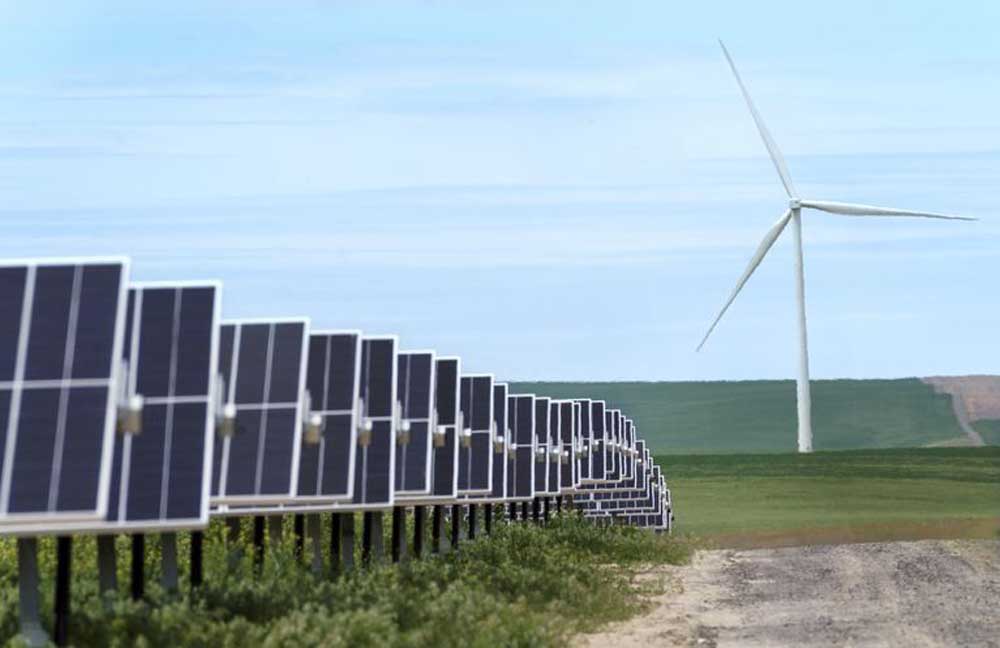Editorial: Voice of the Chieftain
Published 6:00 am Wednesday, June 12, 2019

- The VW ID Buzz Concept Car is powered by a 369 HP electric motor. If we heed the warnings of climate scientists, Wallowa County can save its forests instead of growing palm trees.
The Oregon Mountain Cruise last weekend presented an inspiring collection of automotive art. From painstaking restoration of fragile antiques to wildly creative manifestations of raw power, the vehicles ran the full gamut of gas-guzzling guts and glory.
But there was something missing. Adults under about 35 years of age stayed away in droves. This was a show for boomers, not Millennial, Gen X or Gen Z. The fascination with hydrocarbon-driven power has waned. The world is turning in a different direction, and we are not all pleased. Witness the comment someone made at the show: “When it’s all electric cars, this won’t be as much fun.”
When I returned home and clocked onto the Internet, the first thing that popped up was a full-screen ad for a car: the I.D. Buzz. It looked oddly like the VW Bug featured in the movie Little Miss Sunshine: a yellow microbus. Except that it was electric. “In the dark, we saw the light,” the oddly moving ad’s video said, a nod to VW’s recent issues with overly optimistic gas mileage ratings. While the proto-type Buzz has all-wheel drive and travels nearly 300 miles on one tank of electrons, it still seems a far cry from something that can haul a horse trailer.
But change is coming whether we want it or not. It always has. It always will. Vehicles change. Generations change. Climates change. Today, those three things are intertwined. In general, as more urbanized and younger humans begin to take the reins of culture, the desire to drive cars, period, let alone something with a carburetor and has waned. Between 1983 and 2010 the percentage of 17-year-olds who got driver’s licenses plummeted from 69 to 46 percent, according to the University of Michigan’s Transportation Institute. Similar statistics are everywhere. What’s behind it? Two things. It’s cheaper to use mass transit. And fossil fuel use is a major contributor to an increasingly temperamental warming climate.
If we think that climate change, AKA global warming, has no effect here at home in Wallowa County, think again. This week saw two public gatherings that laid out how a warming climate is causing huge problems right here. Fire ecologist and Enterprise resident Dr. Randi Jandt addressed both the Wallowa County Rotary and an audience at Wallowology with a talk about how warming climates are affecting Alaska. But she also addressed climate change here in The County and across Oregon. Summer temperatures have increased by 2 degrees F since 1895. Summer fire seasons have expanded from three months to five. Sumer heat waves are longer. And along with drier, hotter summers, comes an increase in lightning strikes—a 12 percent annual increase for each degree of summer warming, Jandt said. “I remember that we had some really severe lighting storms and strikes in April this year,” she said. “April thunderstorms were rare to non-existent in the past. They may not be in the future.”
Last week, a forest health workshop along the Lostine River with OSU Extension Forester John Punches revealed that grand fir at low to mid elevations are dying in huge numbers not because of insect pests, but because the trees simply cannot tolerate the lengthening periods of higher temperatures that each summer now brings. No matter how much water the grand fir pump up their trunks, stems and branches, they cannot keep the surface of their needles cool enough to function. And so the trees cease photosynthesis. Essentially, they suffocate and starve.
As much fun as the festival of motorcars might be, the turn towards cleaner vehicles and cleaner energy is welcome as climate change begins to tighten its grip on us. Someday there will be an electric F250 to haul the horse. Or maybe a horse to haul the old F250. Better that than growing Imnaha tomatoes in Joseph, and witnessing forests of mostly dead trees—or no forests at all.








